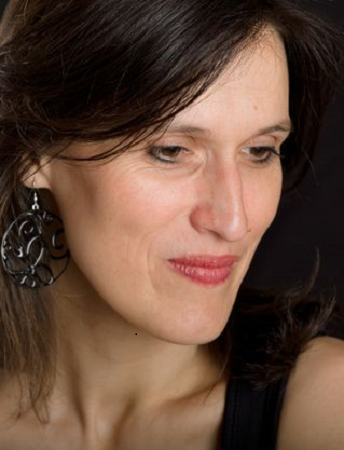Music from the court of Louis XIV covers, after all, a good number of years, the king having reigned between 1643 and 1715. The works by Marais and
Couperin at the close were probably the latest, both dated 1711, four years before Louis’s death. Rather to my surprise, although not without exception, it
was the first half that proved more compelling as a performance to me. Perhaps that was partly a matter of having tired a little; although this repertory
certainly interests me, I can lay no claim to great expertise. One has to listen intently to appreciate its subtleties and its variety, just as one does
with, say, the music of Luigi Nono. Maybe, then, I am - perhaps unusually - more accustomed to listening to Nono.
For there was certainly variety in the programming, within its chronological and courtly framework. Its French title - ‘Au bord d’une fontaine - Airs et
Brunettes’ - alluded nicely not only to one of the Charpentier works and implicitly to Versailles itself, but also to the celebrated 1721 collection of
songs arranged for flute by Jacques Hotteterre, ‘
Airs et brunettes a deux et trois dessus pour les flutes traversieres tirez des meilleurs autheurs, anciens et modernes, ensembles les airs de Mrs.
Lambert, Lully, De Bousset,
&c les plus convenables a la flute traversiere seule, ornez d'agremens par Mr. Hotteterre Ie Romain et recueillis par M. ++++.’ And so, rather
than arrangements, we heard ‘originals’, mostly vocal, with Claire Lefilliâtre as soprano, but with instrumental interludes, from viola de gamba
(Friederike Heumann), theorbo (Fred Jacobs), and the two instruments in concert. We also heard a couple of recitations, Lefilliâtre reading from Corneille
and La Fontaine.
What I think I missed most of all, especially during the second half, was something more outgoing in Lefilliâtre’s vocal performances. Now there is much to
be gained from intimacy, which I valued greatly in the vocal music of Etienne Moulinié and Michel Lambert in particular, and not all of this music, indeed
not much of it, is ‘operatic’, whether in a seventeenth- or a more modern sense. By the same token, however, there were times when, despite trying to
listen as I could, I missed a greater sense of variation both within and between pieces.
The Italianate style of some of the first-half performances - more than once, I thought of Cavalli - initially surprised me, until I reflected on Cavalli’s
own Ercole armante, commissioned by Mazarin for the 1662 wedding of Louis to Marie-Thérèse. As the harpsichordist Luke Green reminded me
afterwards, the roots go back further, however: to the influence of Marie de’ Medici. Such tendencies are not absent, of course, even in Charpentier and
Couperin; not only did I miss them being brought to the vocal foreground more strongly, however; I missed much of what made those composers different, more
modern. Their music looks forward to Rameau as well as back to the earlier years of Louis’s reign. A further oddity was the inconsistency in Lefilliâtre’s
‘historical’ pronunciation, whether in the declamatory Corneille or the vocal items. I have no particularly strong feelings either way about the practice
as such, whether in my own language or another, but it was unclear to me why some word endings should be pronounced and others not. Details matter in most
music, but they certainly do here. Diction and intonation could sometimes be a little wayward too.
There was, though, a moving sincerity to Lefilliâtre’s performances at their best - enhanced for me by the warmth of the church acoustic, although others .
Tales of love and death - are they not often one and the same? - drew one in. So too, very much, did not only the ‘accompaniments’ but the instrumental
items. Heumann’s gamba playing proved her not only mistress of her instrument but above all a deeply sensitive musician, responding to it just as a fine
pianist would to Chopin. The pieces from Marais’s Pièces de viole sounded not only as justly acclaimed summits of this still little-known (at
least beyond certain circles) repertory, but as instrumental music fully fit to hold its own with more celebrated successors. Likewise Jacobs’s theorbo
playing, pulse always clear, and for that reason capable of meaningful rather than arbitrary modification. I do not think I had heard the music of Robert
de Visée before; it emerged in Jacobs’s hands as something clearly worthy of further exploration. And that, whatever certain reservations regarding vocal
performances, is surely the point.
Mark Berry
Etienne Moulinié: Si mes soupirs sont indiscrets; Bien que l’Amour; O che gioia; Charles Hurel: Prélude; Nicolas
Hotman: Allemande; Pierre Corneille: Psyché: ‘A peine je vous vois’; Michel Lambert: Ombre de mon amant;Vos mépris chaque jour; Sieur de Sainte-Colombe - Les Couplets; Sébastien le Camus: Laissez durer la nuit;Ah! Fuyons ce dangereux séjour; Amour, cruel Amour; Michel Lambert - Rochers, vous êtes sourds; Robert de Visée: Prélude;La Mascarade: Rondeau; Chaconne; Jean de La Fontaine - Fables, Livre XII, 14: ‘L’Amour et la Folie’; Charpentier - Profitez du printemps; Celle qui fait tout mon tourment; Au bord d’une fontaine; Sans frayeur dans de bois; Marin
Marais - Pièces de viole, 3ème livre: Prélude and Grand ballet; Couperin - Zéphire, modère en ces lieux. Claire Felliâtre
(soprano); Friederike Heumann (viola da gamba); Fred Jacobs (theorbo). Klosterkirche St Anna im Lehel, Munich, Monday 25 July 2016.
